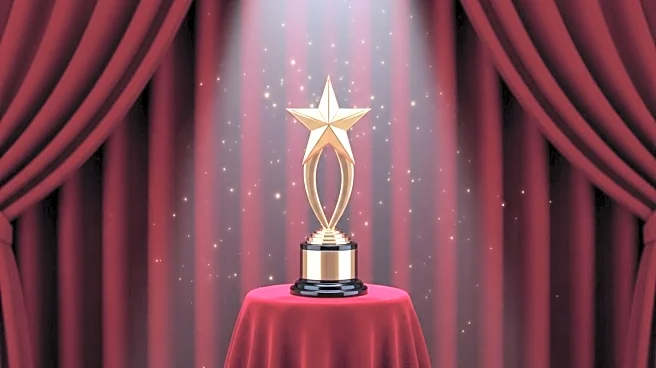What is the story about?
What's Happening?
A group of Hollywood actors and filmmakers, including Javier Bardem, Emma Stone, and Joaquin Phoenix, have pledged to boycott Israel's state-funded movie industry in response to the humanitarian crisis in Gaza. This boycott is organized by Film Workers for Palestine and targets Israeli film production and distribution companies, as well as film festivals. The action coincides with Israel's Cultural Minister threatening the country's film and television academy. The boycott aims to pressure the Israeli government to cease its military actions in Gaza, which a UN commission has labeled as genocide. Paramount and some Israeli movie industry groups have condemned the boycott, arguing it silences creative artists and is misguided.
Why It's Important?
The boycott by Hollywood stars highlights the growing international criticism of Israel's actions in Gaza and the broader Middle East conflict. It underscores the role of cultural and artistic communities in political activism and their potential influence on public opinion and policy. The backlash from Jewish leaders and organizations, as well as the Israeli film industry, reflects the complex dynamics of cultural diplomacy and the challenges of balancing artistic expression with political advocacy. The boycott could impact the Israeli film industry economically and culturally, potentially affecting international collaborations and funding.
What's Next?
The Israeli Academy of Film and Television faces potential funding cuts from the government, as Minister Miki Zohar has threatened to pull state support following the academy's selection of the anti-war drama 'The Sea' for the Oscars. This move could lead to further tensions between Israeli filmmakers and the government, possibly affecting the production and distribution of critical films. The international response to the boycott and the Israeli government's actions may influence future cultural and diplomatic relations between Israel and other countries.
Beyond the Headlines
The boycott raises ethical questions about the role of artists in political conflicts and the effectiveness of cultural boycotts as a form of protest. It also highlights the ongoing debate about distinguishing between a nation's government policies and its citizens, particularly in the context of artistic and cultural exchanges. The situation may lead to long-term shifts in how cultural institutions engage with political issues and the responsibilities of artists in advocating for human rights.















